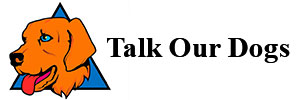It’s a common sight for many pet owners: your dog takes a sudden interest in your lawn and begins to graze on the grass. While this behavior might seem unusual, it’s quite common among dogs. But is it healthy? Should you discourage it? In this blog post, we will explore the reasons behind dogs eating grass and whether it poses any health risks.
Table of Contents
Why Do Dogs Eat Grass?
While the exact reasons are not entirely understood, there are several theories as to why dogs might eat grass. These include:
Instinct
Some believe that grass eating is an instinctive behavior passed down from dogs’ wild ancestors. Wolves and other wild canids have been known to eat grass and plants, potentially to help with digestion or to induce vomiting if they’ve eaten something harmful.
Nutritional Needs
Dogs may turn to grass if they’re lacking certain nutrients in their diet, such as fiber. Eating grass can help to fill this gap.
Boredom or Anxiety
Like humans, dogs can display odd eating habits when they’re bored or anxious. Grass-eating may be a coping mechanism for these feelings.
Is Eating Grass Healthy for Dogs?
Grass itself is not harmful to dogs and is not toxic unless it has been treated with pesticides, herbicides, or other chemicals. However, eating grass can sometimes indicate an underlying health problem, such as gastrointestinal issues, and should not be ignored.
When to Be Concerned
While occasional grass eating is typically harmless, if your dog is eating grass excessively or seems to be using it to induce vomiting, it may be time to consult your vet. This behavior could signal an upset stomach or other health issues that need addressing.
How to Manage Your Dog’s Grass-Eating
While grass-eating is generally not a concern, there are steps you can take to manage this behavior:
Ensure a Balanced Diet
If nutritional deficiency is causing your dog to eat grass, ensuring they’re getting a balanced diet can help. Speak with your vet about your dog’s dietary needs.
Provide Mental Stimulation
If boredom is the cause, try to provide more mental and physical stimulation for your dog. This could include longer walks, playtime, or puzzle toys.
Use Pet-Friendly Lawn Care Products
If your dog is a frequent grass eater, ensure any lawn care products you use are pet-friendly to avoid potential harm.
In conclusion, while the sight of your dog munching on your lawn might seem strange, it’s typically nothing to worry about. As with any unusual behavior, if you notice any changes in your dog’s health or behavior, consult with your veterinarian to ensure your pet is happy and healthy.
Disclaimer: This blog provides general information and discussion about pet health and related subjects. The content provided in this blog and any linked materials is not intended and should not be construed as medical advice. If the reader or any other person has a veterinary medical concern, they should consult with a properly licensed veterinarian or other pet health care provider.
Frequently Asked Questions About Dogs Eating Grass
To help you better understand this curious behavior, here are some commonly asked questions about dogs eating grass:
Q1: Is it a myth that dogs eat grass to make themselves vomit?
A1: It’s a commonly held belief, but it’s not entirely supported by scientific evidence. While some dogs may vomit after eating grass, it’s not clear if they eat the grass to induce vomiting or if the vomiting is simply a side effect of eating grass.
Q2: Can eating grass be harmful to my dog?
A2: Grass itself isn’t harmful, but if the grass has been treated with pesticides, herbicides, or fertilizers, it can be harmful or even toxic. Also, grass can be a host for parasites, which can be transferred to your dog.
Q3: How can I stop my dog from eating grass?
A3: Ensure your dog has a balanced diet and plenty of mental and physical stimulation. If the behavior continues or if you notice any health changes, consult your vet.
Q4: Does my dog need a special diet if he eats grass often?
A4: Not necessarily, but if your dog is eating grass frequently, it’s worth discussing with your vet. They might recommend a dietary adjustment, especially if your dog’s grass-eating might be related to a fiber deficiency.
Understanding your dog’s behavior is key to providing the best care possible. If your dog has a penchant for grass, rest assured it’s fairly normal. However, never hesitate to contact your vet if you have concerns. After all, each dog is unique, and being attuned to their individual behaviors and needs is what makes you an excellent pet owner. Let’s continue providing our dogs the best care and understanding they deserve!





